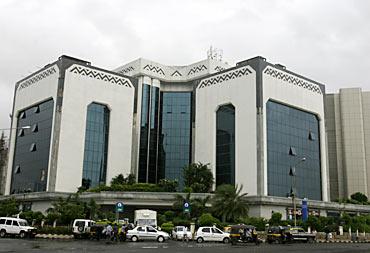
Gold and real estate are very traditional investment avenues. Gold has evolved from its traditional investing and found its place in the modern sophisticated investment world via Gold ETFs.
Similarly real estate is also emerging as an investor friendly avenue with less hassle via portfolio management system route or private equity route. Did you ever think that investing in real estate will one day be as simple as investing in mutual funds?
If no, then read on...
Real estate as an investment
Buying a dream house or flat to reside is basically not a real estate investment. Buying real estate with a view to generate income and capital appreciation is considered as real estate investments.
Real estate investments can be further classified into residential, farmhouse, commercial, retail, leisure. Leisure is a relaxation place where you can spend free time or vacation.
Depending upon your risk tolerance and time horizon you can invest in real estate at different risk levels.
It can be at the time of converting a rural land to urban land, or when a property is under construction after a property is already developed.
Ramalingam K, an MBA (Finance) and certified financial planner, is founder & director of Holistic Investment Planners (P) Ltd. He can be reached at ramalingam_007@rediffmail.com

Most often investors assume real estate prices will not fall down. It is not so. Mid 2009 some of the real estate investments were quoting below 30 per cent to 40 per cent from their 2007 prices. Real estate investments are also prone for price fluctuations.
Real estate versus stock market
Real estate is a complex and complicated investment when compared to stock market investments.
Non-transparent: There is no transparency in the price. It is not easy for a buyer or seller of real estate to identify the last transacted price in the same locality. There is no price discovery mechanism.
Illiquid asset: Selling a real estate asset is a time consuming process. It cannot be liquidated easily. There is no organised market for the buyers and sellers to meet.
Impact cost: Stamp duty and registration charges are very high when compared to other investment products.
No regulator: There is no regulator for the real estate participants and intermediaries. Anyone can become a builder. Technical qualification is not mandatory. Also anyone can become a real estate intermediary or advisor. There is no certification or training to be completed before practicing. As there is no qualification requirement for participants as well as the intermediaries, it is very difficult to see best business practices.

The other hassles with reference to real estate investment are documentation, maintaining the asset without any encumbrances, and genuineness of the title deed.
There are some practical problems with diversification. Normally an investor invests in a real estate in her/his own locality. It is very rare to find someone in Chennai investing in the real estate properties located at Mumbai, Delhi or Kolkata.
Affordability also limits diversification. An investor may not be able to diversify his investments across various cities with a budget of say Rs 25 lakh or Rs 50 lakh.
It may not be possible for an individual investor to buy a land and develop a viable project on that land and sell it in the market. Managing project development needs some kind of expertise. Even if an individual is able to do it, s/he will be doing it in her/his limited ways and means.

Of late yes.
There are some collective investment vehicles that are promoted by an investment management company. The investment management companies collect money from investors. Being professionals, they will identify good projects and enter a joint venture with project developers. Being big in size they are able to diversify across cities as well as different type of real estate investments such as housing, commercial, hospitality and the like. These investment management companies charge a reasonable management fees.
At times they collect money via PMS route and at times via private equity route.
The minimum investment ranges from Rs 10 lakh to 25 lakh. This amount needs to be invested over a period of 3 years. That is they will collect money from investors in 4 or 5 installments. After the third year whenever investors exit from a project the investment management company will repay the principal employed in the project as well as the profit generated out of that project. At the end of sixth or seventh year, the investment management company will exit from all the projects.
The advantages of this collective investment vehicle are:
Because of the advantages and ease of investment involved this is really an investor friendly investment vehicle.
Apart from regular stocks, mutual funds and fixed deposit investments investors can consider investing in these real estate products also. This will give better diversification to your overall portfolio. Investors need to be careful in choosing such investment options.
Background of the investment management company and their transparency levels are more important. Investors can seek the advice of the professional financial planners before investing.
This investment vehicle is in its primitive form only. It still needs to go a long way. As of now there are only a very few companies in India which specialise in promoting collective real estate investment products. But in the next few years such kind of products will be available from various investment management companies and in different varieties like our present mutual fund schemes.